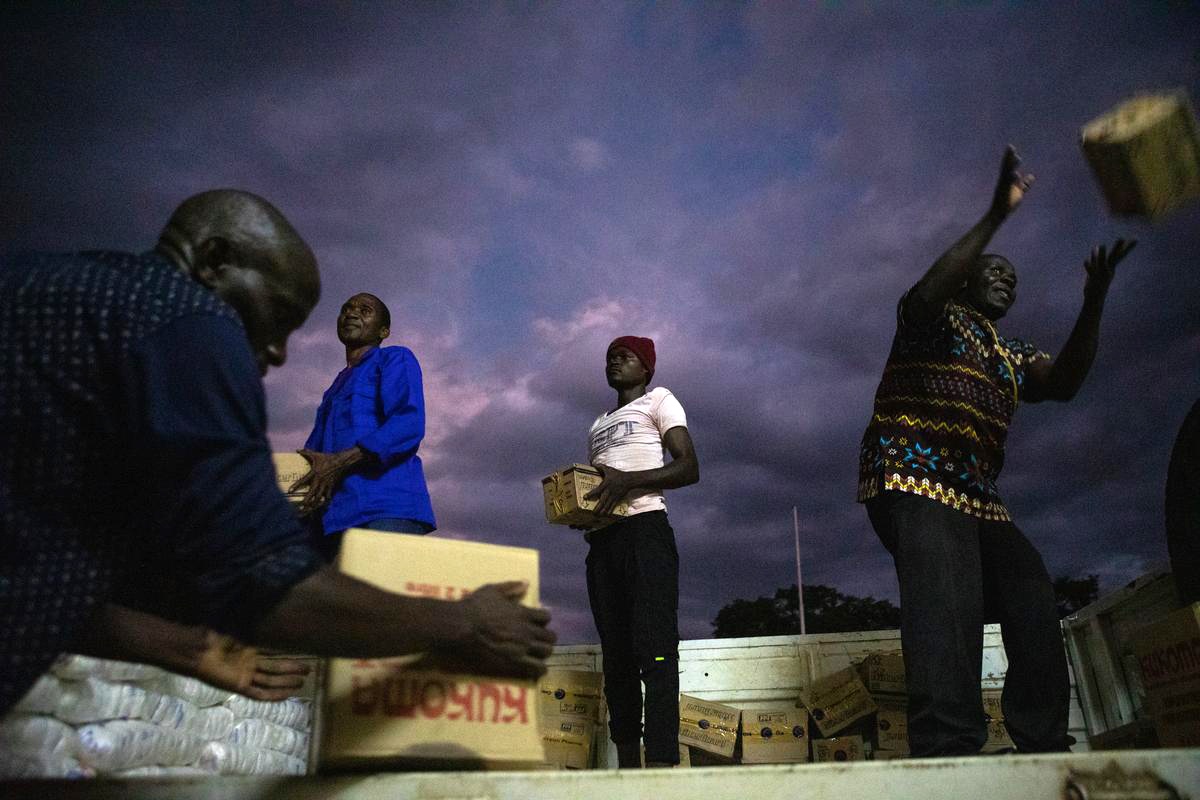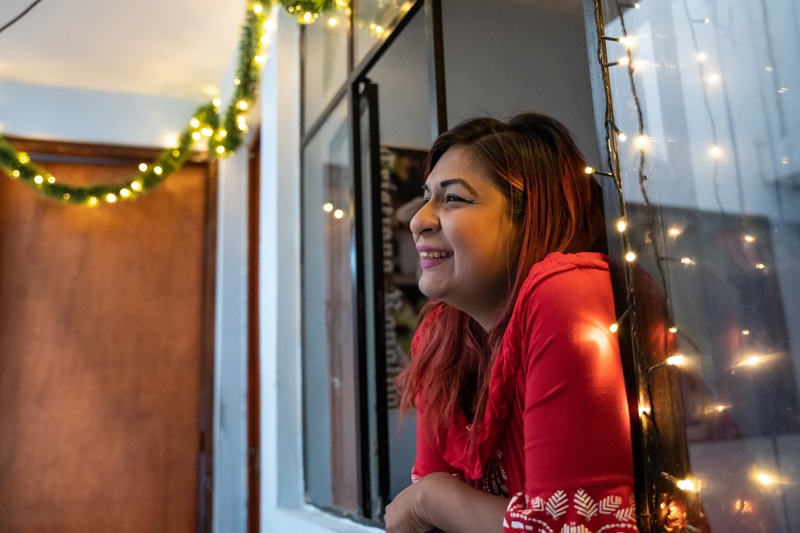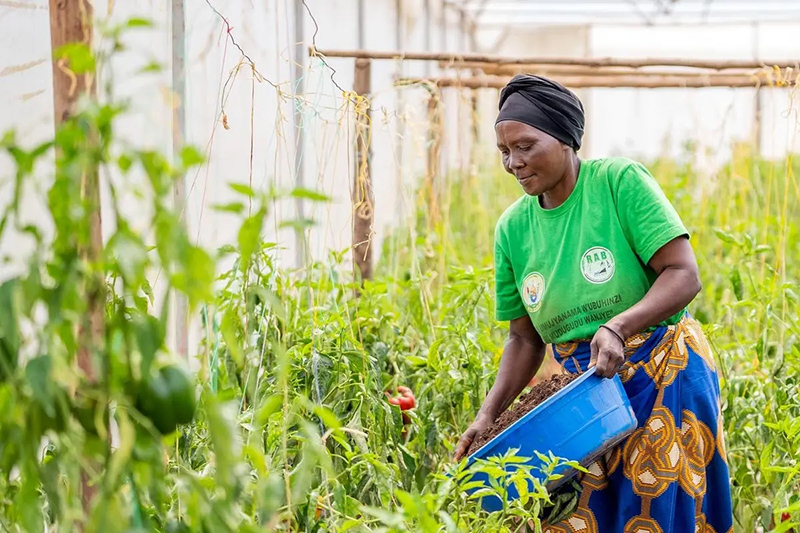Our Favorite Stories, Videos, and Social Posts of 2023
PIH redefined TB and mental health care, responded to emergencies, and accompanied patients through trying times
Posted on Dec 18, 2023

It’s been a packed year.
Headlines highlighted escalating violence in Haiti, cholera spikes in Malawi, and damage from climate-related weather extremes across the globe. But there was good news too: medical education programs launched, major policy breakthroughs on drug pricing and tuberculosis treatment, and reduced rates of maternal mortality. Through it all, Partners In Health persevered, providing top-notch health care to people who need it most.
PIH reaches far beyond a narrow view of medical care to encompass mental and social health as well as physical well-being. Watch this video to better understand the heart of our work, then see below the stories, other videos, and social posts we were most excited about in 2023. It’s an unscientific tally, but reflects our unwavering mission: a commitment to health care as a human right and true justice for all.
Social Support, Mental Health Care
We are beginning to make inroads stopping gender-based violence in countries with entrenched patriarchal cultures. In Haiti, for example, when a 17-year-old woman was gang-raped near her home, Zanmi Lasante, as PIH is known locally, sent a support team, including a psychologist and social worker, to help the survivor and her family begin to process the trauma and offer practical assistance. These mental health professionals are part of a program that seeks to help survivors through direct care and counseling, while also advocating for systemic change, like educating judges and police on gender-based violence.

Brenda Mijahuanca looks out the window of her apartment in Lima, Peru. Photo by Diego Diaz Catire / PIH
Mental health care and social support are central elements of our work. A free therapy program is helping trans women in Peru, where stigma, discrimination, and violence against people who identify as transgender are prevalent and prevent patients from accessing care. In Sierra Leone, PIH launched the first mental health hotline staffed 24/7 by psychosocial counselors and a community health officer manager. When callers dial in to the helpline, they receive a range of advice and resources, from basic mental health tips and straight talk about myths and stigma, to connections for follow-up medical care.
Advances in Tuberculosis and Other Treatable Disease
Our collaborative efforts yielded important advances in treating tuberculosis, a fully preventable and curable disease that still kills more than one million people a year, mostly in low- and middle-income countries. PIH researchers were part of a team that presented results from a landmark clinical trial this year. Their findings pushed the field forward, with evidence to support the use of four new, improved regimens to treat multidrug-resistant tuberculosis. PIH patients in Lesotho participated in the trials as part of the endTB project.
There remain a number of other, curable diseases —think malaria and cholera — that kill many thousands of people each year. PIH aims to correct this deep injustice.
Emergency Care
Although PIH is not an emergency response organization, when emergencies happen, we act to provide treatment and relief. When Cyclone Freddy hit southern Malawi in March, the storm was reported to be the longest-lasting tropical cyclone ever recorded in the southern hemisphere, leaving hundreds dead, thousands injured, and hundreds of thousands of people displaced.
Abwenzi Pa Za Umoyo, as PIH is known locally, immediately moved in to offer medical treatment and psychological care. The storm arrived at night, causing intense flooding and devastation to the region, as shown in this video detailing Cyclone Freddy’s aftermath.
Emergencies don’t always come in the form of natural disasters or disease outbreaks. When patients don’t have enough medical oxygen, it’s literally a matter of life or death. That’s why we spent much of this year working to improve the infrastructure and hospital systems at our sites to give patients greater access to oxygen. As one doctor said, “One of the worst things in the world is listening to a patient gasping for breath.”
Empowering Patients and Communities
Energy self-sufficiency leads to better patient care. In Haiti, for example, with gang violence and social instability this year, obtaining adequate fuel for the generators at Zanmi Lasante’s Hôpital Universitaire de Mirebalais became far more challenging. As a result, the hospital encountered power losses on several occasions. Our investment in solar power at hospitals in Haiti and Peru means we can provide patients and clinicians a stable and reliable energy source, essential for medical care and treatment.

Rose Mukabatabazi tends to crops in a greenhouse opened by Partners In Health in Kirehe, Rwanda. Photo by Asher Habinshuti / PIH
In a novel program, we are also supporting greenhouses in rural Rwanda to combat food insecurity and create sustainable sources of income for impoverished families. Farmers enrolled in this program include those with chronic illnesses and those with young children suffering from malnutrition.
For more information about global health inequities in the countries where PIH works, visit this widely shared post on Instagram. One example: Sierra Leone, a country of eight million people, only has three psychiatrists.
Accompaniment
For PIH, “accompaniment” means that we remain beside patients from the start of their health care journeys and remain alongside them as long as it takes—even if that means a lifetime. When Linda Depoyou, a 27-year-old mother of three in Liberia, gave birth to a little boy this summer, he weighed only 0.6 kilograms, or 1.3 pounds. But after three months of care, social support, and medical treatment at the neonatal intensive care unit at Partners In Health-supported J.J. Dossen Memorial Hospital in Harper, Depoyou and her new baby were able to return home and restart their lives together.
Sometimes, PIH patients becomes such an integral part of the culture, they stay and become health workers, like Jean Claude "Gatoto" Rutayisi, who lives with HIV and is now a community health worker supervisor in eastern Rwanda.
Advocacy and Good News in Global Health
We advocate for community health workers (CHWs) around the world, including in the United States, where PIH-US and other national organizations spoke to lawmakers in Washington D.C. this year about the critical role of CHWs and what policies might support the expansion of this frontline public health workforce.
Despite the harsh realities around the world, we’ve seen progress in global health, from declines in AIDS-related deaths to decreased child mortality. We believe that sometimes, it’s good to post good news; it shows that change is, indeed, possible.
Your Gift is 3X Matched
From today until the end of 2023, your donation will be TRIPLED by a group of generous donors! This is the perfect time to multiply your impact and make a tangible contribution to health care as a human right.

